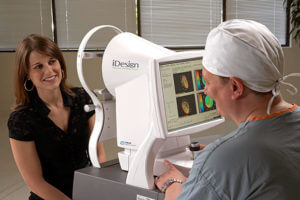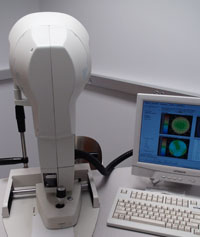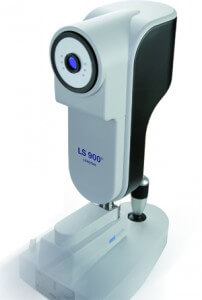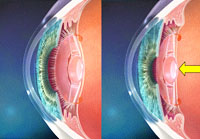Cataract Surgery
Experiencing dimmed colors or challenging night vision often signals cataract development, a condition that affects nearly everyone as they age. At Pepose Vision Institute, St. Louis patients access comprehensive cataract surgery solutions designed to restore visual clarity while reducing dependence on corrective eyewear.
Our cataract surgery team specialize in precision cataract surgery, utilizing advanced intraocular lens technology that enables patients to achieve functional vision at multiple distances. This multifocal approach to vision restoration allows many patients to experience life with significantly reduced reliance on glasses or contact lenses.
Pepose Vision Institute’s comprehensive cataract treatment methodology combines thorough preoperative evaluation with customized surgical planning, ensuring each patient receives personalized vision correction tailored to their lifestyle needs. The practice’s commitment to advanced cataract surgery techniques positions patients for optimal visual outcomes and enhanced quality of life.
What Are Cataracts?
Inside our eyes, we have a natural lens. The lens bends (refracts) light rays that come into the eye to help us see. The lens should be clear. A cataract is a clouding of this usually clear, transparent lens of the eye.
A cataract is not a tumor or growth of new tissue over the eye but rather a fogging and loss of clarity of the lens itself. When a cataract forms, the lens can no longer focus the light clearly, resulting in your vision becoming cloudy. Things look blurry, hazy, or less colorful with a cataract. Some other vision changes you may notice include:
- Double vision
- Extreme sensitivity to light
- Trouble with night vision
- Seeing bright colors as faded or yellow
Early-stage cataracts typically cause minimal vision problems. However, as the condition progresses, patients may experience partial or complete vision loss that persists until surgical intervention. Cataract surgery addresses this issue by removing the cloudy natural lens and replacing it with a clear artificial lens, thereby restoring sight.
What Causes Cataracts?
Although cataracts result from many conditions, the most frequent cause is the natural aging process. Other causes may include eye trauma, chronic eye disease, and other medical conditions such as diabetes. As we age, our eyes change in a gradual, predictable manner. During this time, the lens begins to break down its normal proteins; this causes cloudy lenses. By the time people reach their 60s, their lenses have usually started to cloud. Despite this, vision problems are not always immediately apparent.
Cataracts can take from a few months to several years to develop. Certain medications can accelerate the development of cataracts. Sometimes, the cataract stops developing in its early stages and vision is only slightly decreased. But if it continues to develop then it impairs vision and requires surgical removal.
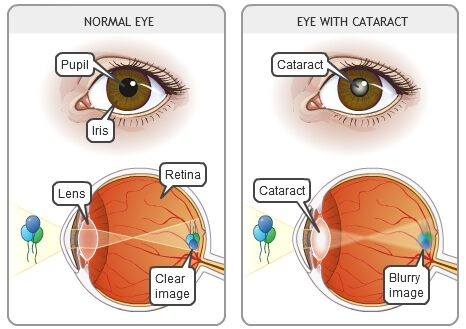
Pepose Vision is a worldwide leader in the research of cataract treatment and removal. We utilize the latest technology and provide the convenience of a surgery center in our building. Our surgeons are involved in your entire surgical process, including pre-op, and are recognized each and every year among the very best.
How Do I Know If I Have Cataracts?
You may not notice any symptoms with early cataracts. As a cataract becomes more advanced you will notice a decrease in vision, not fully correctable with glasses. Contrast sensitivity is lost, so that shadows and color vision are less vivid. You may note more glare as light into the eye is scattered by the cataract. You may also observe halos around lights. Night vision will be diminished. In certain types of cataracts, double vision may be noted in the affected eye. Some patients note that they require frequent changes in their eyeglass or contact lens prescriptions and may be aware that their near vision is improving as their distance vision declines.
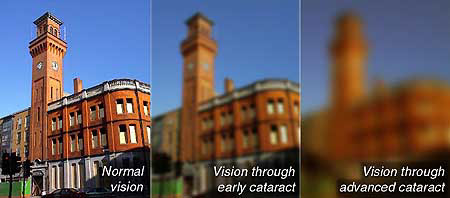
A cataract does not routinely cause discomfort or pain in the eye or alter the external appearance of the eye.
The only way to determine if your vision issue results from a cataract is to visit an eye care professional for a complete eye exam. We use state-of-the-art diagnostics to evaluate your eyes. Our wavefront diagnostic technology generates thousands of data points about your eyes in a matter of minutes. We are the only cataract surgeons in the greater St Louis area to provide this level of thoroughness during your exam.
St. Louis’ leading cataract surgeons
Providing our patients with compassionate and customized care.
How Are Cataracts Treated?
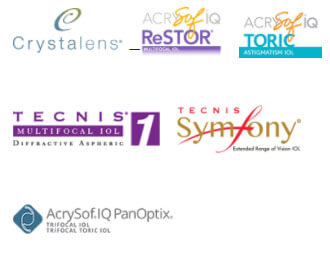
The only effective cataract treatment is surgery to remove the diseased, cloudy lens. Neither diet nor medications have been shown to stop cataract formation.
In a cataract operation, we remove the eye’s natural lens. Vision can then be obtained by implanting a permanent intraocular lens (IOL). This replaces the natural lens. This artificial lens is made of plastic and is usually inserted at the same time the cataract is removed. Depending on the individual case, the lens is placed directly behind or sometimes in front of the iris. The iris is the “colored” part of the eye.
There have been remarkable advances in cataract treatment. Premium lenses (IOLs) now not only help make vision clearer but can also help improve near and far vision. Often patients that select these lenses do not need to use their glasses anymore.
Our doctors will explain all of your exciting cataract lens implant options during your appointment, but if you would like to learn more in the meantime, please click here.
Patients Often Ask These Questions About Cataracts
Did You Know Pepose Vision Also Has An Advanced Research Facility in St. Louis?
Choosing Your Cataract Surgery Provider
We know that “one size does not fit all.” We’re one of the first in the nation to offer the latest diagnostic and surgical technologies to our cataract patients.
We’ve worked with some of the leading developers of eye technology to perfect both the technology and the procedure, and our state of the art diagnostic tests for cataract surgery are the most advanced available today. These tests, and our unparalleled experience in interpreting the results, ensure that your procedure is tailored exactly to your needs.
Though cataract surgery has become “routine” in terms of occurrence, it is still SURGERY. We recommend that the best way to ensure a successful outcome is to choose a highly experienced surgeon who is involved in developing state-of-the-art treatments to enhance your vision outcome.
Why Have Cataract Surgery At Pepose Vision
Our State-Of-The-Art Cataract Diagnostic Tests
Advanced Surgical Cataract Removal Procedures
What to Expect During The Cataract Surgery Process
1) Schedule Your Cataract Screening at Pepose Vision
Call us at 636-728-0111 or contact us online to schedule your private 30 minute cataract screening with one of our doctors. We’ll check your eyes to confirm that your vision problems can be addressed through cataract surgery. You will also have time to ask questions and be given additional educational materials for your review. At the end of the consultation, we will schedule your pre-operative examination with one of our surgeons.
2. Come in for Your pre-operative exam
We will check and re-check your eyes using multiple, state-of-the-art diagnostic instruments, because the precision of the pre-operative measurements dictates the quality of your vision outcome. During this visit, your surgeon will answer any questions you still may have, and will discuss the cataract treatment that is most appropriate for your eyes and medical condition.
3. Schedule Your Procedure
Our surgery schedulers will obtain pre-certification from your insurer, if required, and will review all pre-operative instructions with you. They will also schedule all of your post-operative visits at this time. Each of your eyes will be treated on a separate day, approximately two weeks apart.
4. Come In for Your Brief, Pain-free Procedure!
Take one last look at the world through your clouded natural lens a blurry world devoid of vivid colors! Your procedure will be totally painless, thanks to topical and/or IV anesthesia. Within an hour of your surgery, you are ready to go home and treat yourself to a nap, via doctor’s orders!
Cataract Patient Testimonials
Ready to Get Cataract Surgery?
If you think you might have cataracts, or any vision issues, please come see us.
Our experienced doctors will use advanced diagnostics to determine exactly how to help you see your very best, patiently answer your questions and carefully explain all your options.


